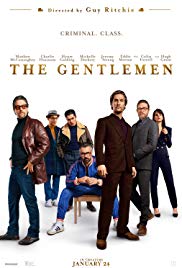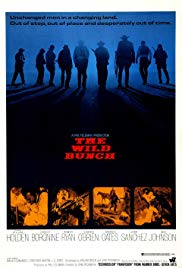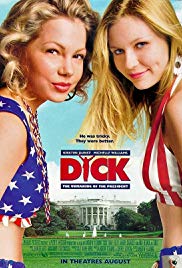Title: The Gentlemen
Rating: 5 Stars
Guy Ritchie must get pretty frustrated. You can tell that he wants to be known as a director with many talents. It has to be frustrating that so many of his films are received poorly. What did you think of the live action Aladdin (otherwise known as the Blue Will Smith)? Or the most recent King Arthur? I don’t know about you but I couldn’t even finish The Man From U.N.C.L.E.
Sure, he made the first Sherlock Holmes with Robert Downey Jr and Jude Law. That was pretty good, but then made the two sequels which weren’t quite so good.
But then there’s the British overly-complicated overly-verbal organized-crime caper film. He absolutely owns that genre. I’m talking Lock, Stock, and Two Smoking Barrels. I’m talking Snatch. I’m talking Revolver. I’m talking Rocknrolla. Seriously, each of these films is brilliant in its own way.
There’s an authenticity to these films, even though I have no idea how the British criminal underground actually works. He often casts actors that come from this milieu. Each of the characters are distinct. All characters have perfect voices saying the perfect lines.
It’s been over ten years since his last one. I don’t know if there were studio executives pleading with him to quit fucking around with subjects that he’s not good at and to go back to his genius. Whoever or however he was convinced, I’m thrilled that he’s back.
The Gentlemen is a wonderful Guy Ritchie film. If you’re not into comedically dark violence, accents that sometime border on the impenetrable, plots that require a PhD in chaos theory, or a film that is nearly entirely composed of exposition, this might not be up your alley.
Otherwise, hold on, it’s going to be a ride. I’m not going to bore you with the plot details, not to mention that I don’t have enough words anyway. Mickey Pearson (Matthew McConaughey) is a very successful pot dealer that wants to sell out and get out. He wants to sell to Matthew Berger (Jeremy Strong). Dry Eye (Henry Golding) also wants to buy Pearson’s business. Fletcher (Hugh Grant) is a private investigator sniffing around Pearson’s business.
Plot gets complicated. Double crossers get triple crossed. People die in varied and amusing manners.
To enjoy a Guy Ritchie film, you just have to sit back and enjoy the characters and the action. Hugh Grant is perfect as a sniveling and smarmy weasel trying to get his cut of the sale. Colin Farrell, as Coach, the local gym owner whose mission in life is to straighten out wayward young lads and, oh, by the way, turns them into a rapping, youTube violence porn gang, is absolutely the best small part by a major star in a Guy Ritchie film since Brad Pitt’s Mickey O’Neil, the Irish Traveller bare knuckle champion from Snatch.
And, oh my God, the exposition. Fletcher basically narrates the entire film during an extended session of scotch and steak as he attempts to negotiate his twenty million fee from Pearson’s right hand man Raymond (Charlie Hunnam).
Oh yeah, there’s also Russian oligarchs involved. And some lower tier British peers and their mansions. And a Rupert Murdoch like media magnate. And sex with a pig.
In short, an awesome film.
OK, Guy Ritchie, go ahead and go back to what you were doing. Who knows, maybe a musical teenage coming of age in outer space? Whatever, hopefully I’ll see you again in five or ten years, making the kind of film that only you can make.
I can’t wait!







